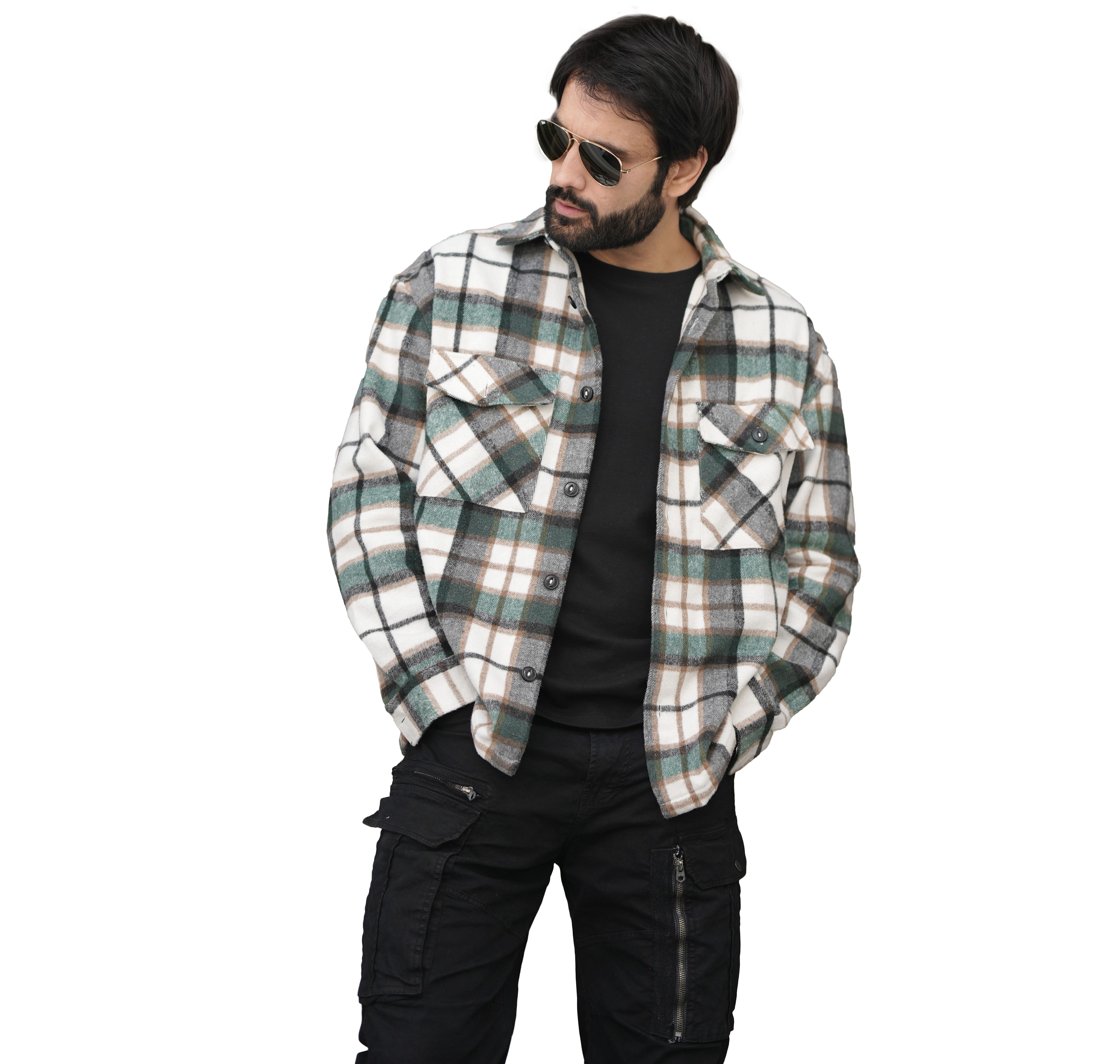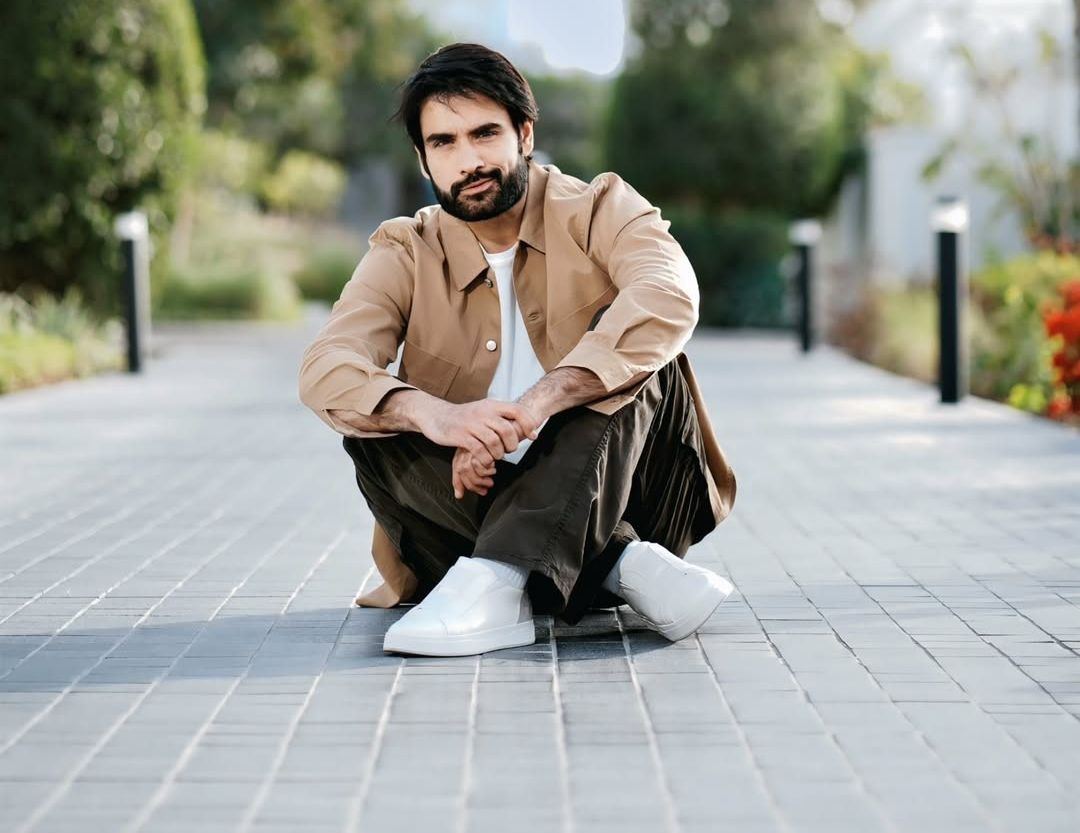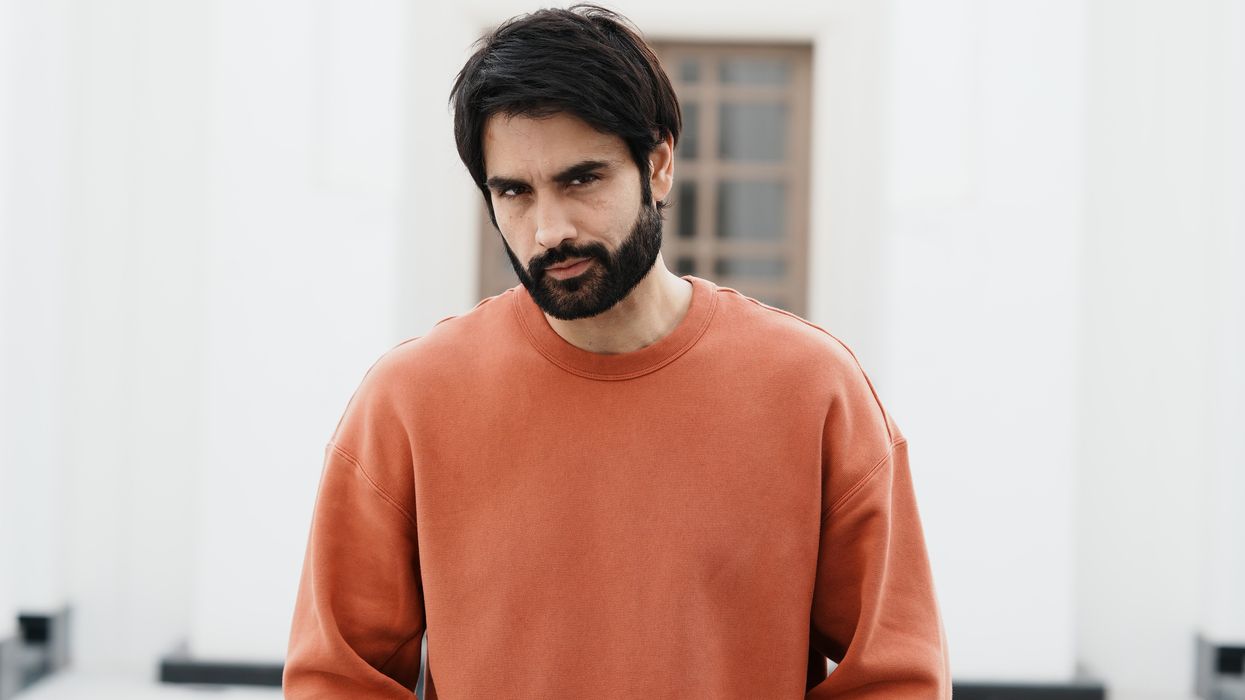With his brooding charm, striking screen presence, impressive acting ability and fiercely loyal fan base, Vivian Dsena has carved a niche for himself on Indian television.
From playing the intense Rishabh Kundra in Madhubala – Ek Ishq Ek Junoon to the vampire Abhay Raichand in Pyaar Kii Ye Ek Kahaani, and the emotionally complex Harman in Shakti – Astitva Ke Ehsaas Ki, Dsena has always picked roles that challenge the norm – and he has done it all on his own terms.
Most recently, he entered the popular reality show Bigg Boss after years of turning it down, and made a strong impression on viewers.
Eastern Eye caught up with the massively popular star, who shuttles between Mumbai and Bahrain, to reflect on his journey. He also spoke about what truly matters in life, family, creative inspirations, his dream role, the one thing he wants to master, the secret of a good performance, his loyal fanbase and why he likes being unpredictable.

You have always done everything on your own terms. How do you reflect on that career journey?
Conviction is the most important thing for an actor. With every project, I had to convince myself that I could play the character and look the part. Only then would I say yes. That’s why I’ve always been selective. God has also been kind. I’ve had four shows on air as a lead, and by God’s grace, all were successful. So yes, conviction has played a huge role in my career.
Did you decide early on to prioritise quality over quantity?
It just happened by chance. I was someone in the right place at the right time – although there’s been a lot of hard work behind it. But they say when something is destined for you, sometimes you walk towards it, and sometimes it walks towards you. I think I chose the right roles at the right time. Heartfelt thanks to God and my lovely viewers.
They asked you every year to do Bigg Boss, and you always refused. What changed?
My wife and I were talking about work. She said, “Baba, you need to step out of your comfort zone. You’re not going back to another daily soap, so why not try Bigg Boss?” I asked, “Are you sure?” But she was the one who convinced me. It was mainly Nouran who encouraged me to do the show.
How do you look back on your experience on Bigg Boss?
It was a fantastic experience – something I achieved as a person. There were moments when I felt anxious or angry, like anyone would, but I managed to control myself while living in that house.
What did you learn about yourself in that setting?
Bigg Boss is about survival of the fittest. In life, you meet all kinds of people – some kind, some who teach you something, and some you’d prefer not to meet again, but destiny brings them into your life. That’s how life is – full of such encounters – and it carries on, even after a show like Bigg Boss.
Would you have done anything differently?
No, I wouldn’t. That’s who I am and how I’ve always been. We all grow into the people we are. Asjad, you’ve known me for nearly 16 years — since I first started playing lead roles. I’ve changed a lot over time. I’m a father now. Life teaches you constantly.
You’re known for being unpredictable. What’s your plan next?
(Laughs) I think that unpredictability is what people love about me – and I enjoy it too. It’s like that line from The Devil’s Advocate, where Al Pacino says, “I’m a surprise. They don’t see me coming.” That surprise element keeps things exciting and keeps me energised. What I can share, as a brother, is that there are some projects coming up – including web shows I’m in talks for. Hopefully, you’ll see me in a new kind of role soon.

What inspires you creatively?
My fans. They made me who I am. I still remember when you first contacted me because of fan demand. I was surprised that people in London knew me! I even asked you, “Do people in London know who I am?” So yes – it’s always been the audience that inspires me.
You have an incredibly loyal fan base. What does that love mean to you?
It means a lot. It keeps me creatively alert. More than just loving them back, I feel responsible towards them. I owe it to them to work hard, explore new characters, avoid repetition, and be a good role model.
Is there one role you haven’t played but would love to?
Yes – I’d love to play a rock star. That’s one character I really want to take on in a well-written story.
You’ve stayed away from films so far. Is that still your choice?
Right now, there’s a lot to focus on – non-fiction TV and web shows – so that’s where my attention is. But if a good film came along, I wouldn’t rule it out. You can do just TV and OTT and still survive – and thrive! By God’s grace and my fans’ love, I’ve survived for 17 years without doing a film. Inshallah, I’ll continue to do so.
You’re widely seen as a very good actor. What’s the secret to a strong performance?
Thank you, brother – it means a lot coming from you, since you’ve seen my whole journey. For me, it starts with connecting to the character. If I can’t feel it, I won’t take it. There have been shows where I said no right after the narration because I couldn’t relate to the character. You need to understand the role – and believe in it completely.
What are your biggest passions away from work?
Spending time with my family. I live in Mumbai, and they’re in Bahrain, so whenever I get the chance, I travel to be with them. That’s the most fulfilling part of my life outside work.
If you could master one new thing, what would it be?
Skydiving has always been on my bucket list. But it can wait – there are other things to focus on first.
And your wife would never let you do it.
She wouldn’t stop me – but once I master it, she definitely won’t come with me. And she won’t let the kids join me either.
What’s your idea of happiness today?
What I’ve realised in 36 years is that we all work hard for our families – for the people waiting for us at home. The deepest contentment comes from family and their comfort. That’s where real happiness lies.
You’ve become a strong role model for the younger generation.
There’s a difference between being popular and being a responsible celebrity. A popular person says things to please the crowd. A responsible celebrity says things that add value to society. That’s the difference – and I believe in leading by example.
What advice would you give young people starting their careers?
Never give up. There will be moments when it feels like everything is falling apart. But when you think it’s the end, it’s actually not. It’s the beginning of a new journey – one you can’t see yet.
Why do you love being an actor?
Because I believe this is what I do best – by God’s grace and with the love of my fans.




